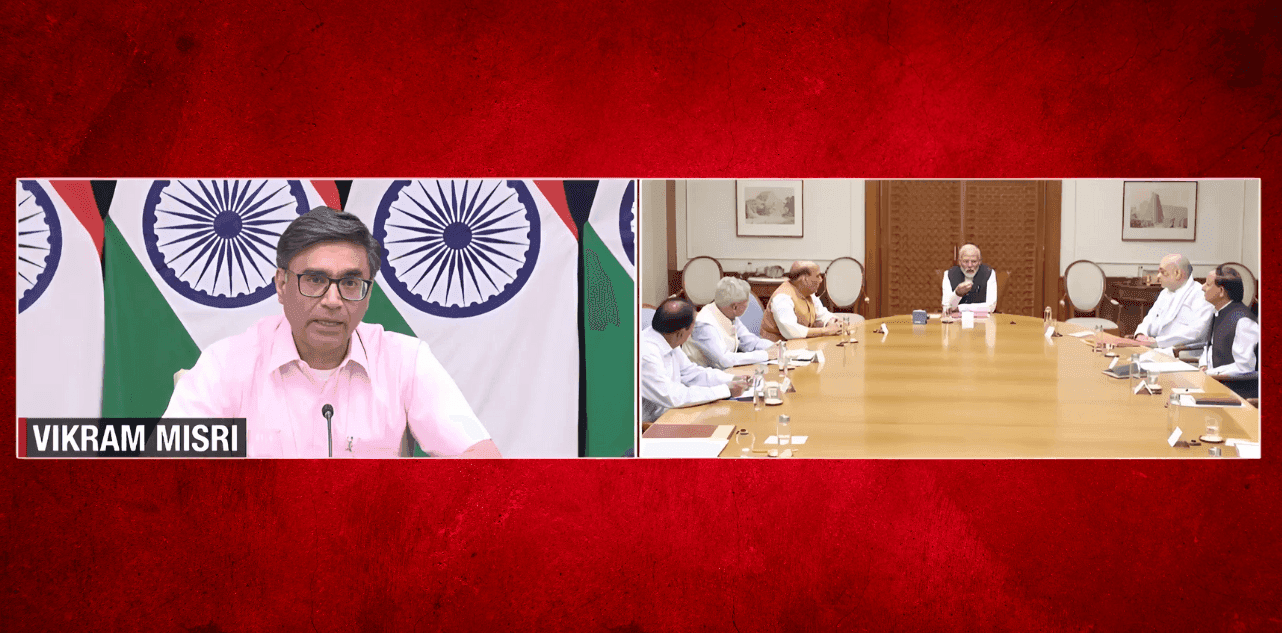Saturday 28 February 2026
India Suspends Indus Waters Treaty: A Watershed Moment in Indo-Pak Relations
Share

India and Pakistan have always had a warlike existence of suspicions and diplomatic clashes ever since partition in 1947. The World Bank-financed Indus Waters Treaty (IWT) of 1960 stands as the lone independent instance of cooperation. It allocated the eastern Indus rivers of Sutlej, Beas, and Ravi to India and allocated the western rivers of Indus, Chenab, and Jhelum to Pakistan and created a Permanent Indus Commission for technical cooperation.
The treaty survived numerous wars and bitter disputes, including the 2008 Mumbai terror attack. But this collaboration between them went on until April 23, 2025, before it got spoiled by the Pahalgam Terror Attack.
It was on the 22nd of April, 2025 that the fragile peace between the two countries was violated when a horrific terror attack was unleashed upon the Jammu and Kashmir town of Pahalgam. Twenty-six lives, 24 of them being Indian tourists, were lost when a blast went off in a crowded marketplace. Another lesser-known but enigmatic organization, Kashmir Resistance, took responsibility for the massacre, but Indian intelligence circles were keener to follow leads to the better-known Pakistan-based organizations like Lashkar-e-Taiba and Hizbul Mujahideen.
The political and emotional reaction in India was immediate and ferocious. National outrage swept over India, anti-Pak agitations raging Indian cities, calling for severe retributive measures against Pakistan. India's government moved quickly and aggressively. As a concerted act of diplomatic removal and border closure, New Delhi did something unprecedented by suspending the Indus Waters Treaty until Pakistan takes tangible, irreversible steps to drive terror groups out of its soil. Earlier, Indian Foreign Secretary Vikram Misri had suggested that exceptional circumstances justified scrutiny of all the cooperation pacts with Pakistan and that the IWT could no longer be among them.
By doing so, to strike at the water-sharing agreement, India is employing a natural strategic advantage as a foreign policy tool. That's a shift in strategy, and it indicates India is willing to apply sustained pressure through non-military means. For New Delhi, to continue honoring a treaty with a country that has been termed as a supporter of terrorism, was a political and ethical non-starter. There was a forewarning on this - India had already served notice on Pakistan in January 2023 for treaty amendment on the basis of years of outstanding objections to Indian hydroelectric schemes such as Kishanganga and Ratle. It set the precedent for the current suspension and answered increasing irritation at what India sees as treaty obstructionism masquerading on the part of Pakistan. In a nation where symbolism had to be as much at the top as strategy, this move is all it takes to announce collegiality and no accountability cannot be expected.
Pakistan is completely dependent on Indus River system for irrigation, power generation, and municipal water supply of water. Over 80 percent of the country's cultivable land is irrigated by the western rivers as per the treaty. All the food grain crops of the nation including wheat, rice, and cotton are being grown by utilizing this water. Any short-term seasonal cut-off of flow would result in devastating crop loss, shortages, and inflation. Pakistani power sector is also very exposed where hydropower contributes a colossal share to the country's clean energy basket. Chenab and Jhelum rivers are the bread and butter of powerhouse stations and dams producing millions. Flow shortage of water due to diversion or jam in the upstream by India would result in colossus shortages of power, further stifling economic activity. In already dry urban cities of Lahore, Islamabad, and Karachi, such a step would lead to deficiency of drinking water, public health risk, and increase social tensions. These cascade effects are the essence of political character of the treaty and hence part of Pakistani national identity and presence.
The world in general and the United Nations quickly responded to condemn the attack on Pahalgam and call for restraint between the two countries. The World Bank, co-signing inter-governmental guarantor to the original agreement, will be cautious to be drawn into resumed diplomacy, if at all, and thus that will sure be busy with reasons for suspension.
China, and interested strategic actors elsewhere in South Asia, have living interests at risk. China also has its own complicating water dispute with India Where combat intensifies, it might compel localized competition and lead to higher-order geopolitical re-mapping. Melting glaciers, errant monsoons, and reduced river runoffs due to global warming make transboundary water management more difficult. Cooperative arrangements, as much as they have to be maintained whenever they have to be invoked, represent a new source of distrust and fear in suspension.
Newsletter
Stay up to date with all the latest News that affects you in politics, finance and more.